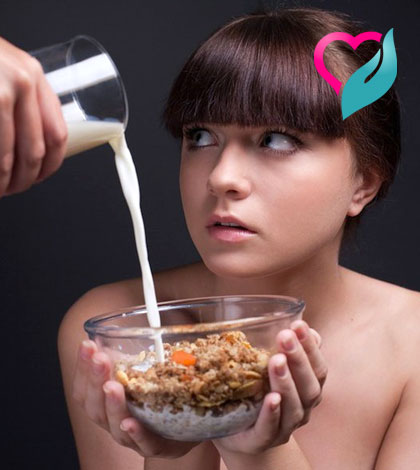1Ayurveda, the ancient Indian system of natural and holistic medicine, has evolved as part of wellness and good living. It also says what to eat and what not to. Every food has its own taste (rasa), a heating or cooling energy (virya) and post-digestive effect (vipak).
When two or three different food substances of different taste, energy and post-digestive effect are combined together overloading and inhibiting the enzyme system and resulting in production of toxins in the system. Ahara includes both food and drugs. Some of these substances will stimulate the doshas and activate them towards pathological state. Therefore they become harmful to the body tissues and systems. These are all known as Viruddha dravyas or Ahita dravyas. The same is known as incompatibility in modern medicine.
Ayurveda explains incompatible foods (virudh aahar) as two or more food ingredients when combined that are not good for your health. Foods may be incompatible because they create a negative reaction in the body leading to skin conditions, block the body’s channels, contribute to heart disease or lead to indigestion. Let’s look at the food combinations that are incompatible and should not be taken together.
1 ) Milk should not be eaten with fish as milk is a coolant and fish has a hot potency that vitiates the blood.
2 ) Chicken or fish should not be combined with milk, sesame, or sprouted grains as it may lead to digestive problems.
3 ) Salt and milk together should be avoided due to antagonistic qualities in the two.
4 ) Milk and melons (or any fruit) must not be consumed together because milk is a laxative and melon a diuretic, the combination creating a sour stomach and lots of acidity.
5 ) Banana should not be eaten with milk, yogurt or buttermilk because the combination can diminish digestion, produce toxins and lead to cold, cough, and allergies.
6 ) Avoid cold or iced drinks during or directly after a meal as the cold diminishes digestive fire (agni) causing a host of digestive problems, allergies, and colds.
7 ) Ghee and honey must not be mixed in equal quantities as they have opposite reactions in the body. Honey has a heating, drying, scraping action whereas ghee has a cooling, moisturizing quality.
8 ) Sweet and sour fruits should not be combined. Individual fruits should be eaten as is and as a different meal.
9 ) Sour fruits should not to eaten or combined with milk.
10 ) Avoid eating raw and cooked foods together. One can have the salad first and then proceed for dinner after a short gap.
11 ) Potato, tomato, eggplant, and chillies are incompatible with yogurt, milk, melon and cucumber.
12 ) Eggs should not be eaten with milk, meat, yogurt, melons, cheese, fish, and bananas.
13 ) Lemon should not be consumed with yogurt, milk, cucumbers and tomatoes.
14 ) Avoid cold or iced drinks during or directly after a meal. The cold diminishes digestive power (called agni) and causes a host of digestive problems, allergies, and colds. (The same goes for ice cream and frozen yogurt.)
15 ) It is best to avoid leftovers if you can. Food loses its vital energy after a night in the fridge and gets slimy and heavy, too. If you do eat leftovers on occasion, sauté them in ghee and black pepper. Don’t mix leftovers with fresh food either.
The above list is by no means an exhaustive one. It must also be remembered that a proper Ayurvedic diet should consider nutritional value, constitution, seasons, age and any disease condition. A goal of Ayurveda is to help you better understand what foods will support your body and which ones may create an imbalance. By understanding proper food combinations, you can make the educated choices that support your body.
Image courtesy: i-am-bored.com , themalaysianinsider.com


























